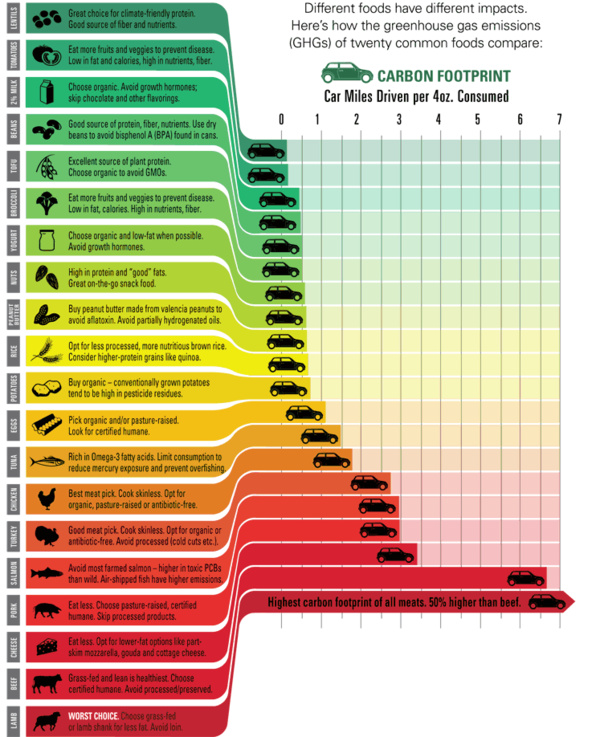 According to a recent survey, if there were a meat-free day weekly, then that would enormously improve the environment. It turned out, if people in the USA would not eat meat and cheese for a day each week, in such a case that would have an impact on the environment similarly as if 7.6 million cars were withdrawn from circulation.
According to a recent survey, if there were a meat-free day weekly, then that would enormously improve the environment. It turned out, if people in the USA would not eat meat and cheese for a day each week, in such a case that would have an impact on the environment similarly as if 7.6 million cars were withdrawn from circulation.
The Meat Eater’s Guide to Climate Change and Health takes into account all the steps of food production, output, consumption even calculating how much waste is produced during these processes. The lesson from all this is that those people who consume less cheese and meat contribute a lot less to the harmful effects of greenhouse gas emissions and have to cope with less health issues. Previous conducted surveys of great volume mainly concentrated only on the effect of production.
If consumers ate less meat products, they would considerably take active part in decreasing environment pollution, which are caused by manuring, petrol and water consumption as well as pesticide use and not to mention poisonous materials used during production or that arise from the production, says Kari Hamerschlag, senior analyst at EWG (Environmental Working Group) and conductor of the survey.
Mario Batali, the renowned chef states that it is a fact that Americans eat much more meat than it is good for them or the planet. However, it is quite unlikely that everyone is going to follow vegetarian diet and even less likely to become vegan. It is unrealistic to ask this from anyone; nonetheless, people should be more considerate to eat a lot more vegetables and fruits and support such farmers, who keep their animals in a humane and environment conscious way. “That is the reason I believe in the importance of Meat Free Mondays’ campaign and Environmental Working Group’s guides.”, says Batali.
The survey also points out that consuming great quantity of beef and pre-prepared meat (cured and seasoned) increases the amount of toxic materials in our body and escalates the risk of such problems like obesity, cancer and heart diseases. EWG has asked CleanMetrics specializing on environmental studies to conduct a survey together on 20 different kinds of animals from their cradle to the grave that were raised in a non-organic environment or which were not fed in a good pasture or grazing ground . They observed the course of life of fish, dairy produces and vegetables as well and thus counted their ecological footprint.
Source: 168ora.hu

